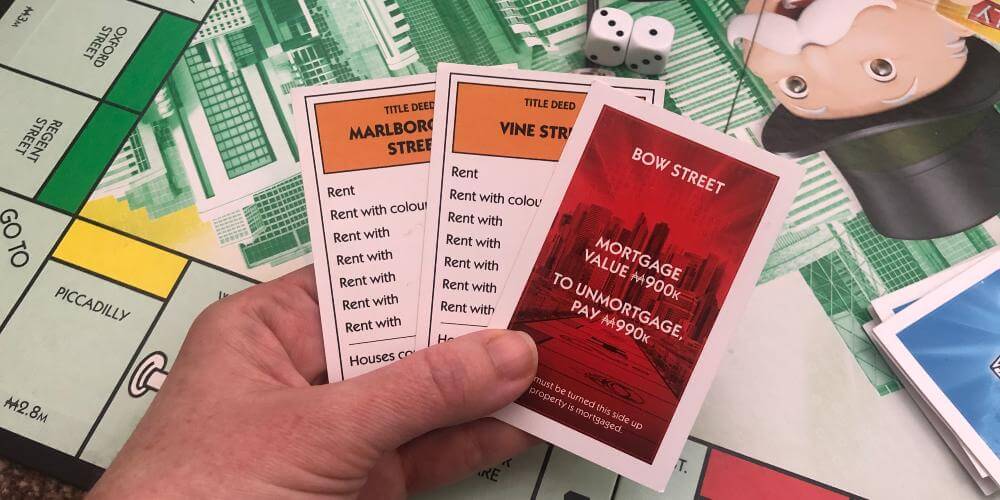In such conditions, expectations are for house rates to moderate, because credit will not be available as kindly as earlier, and "individuals are going to not have the ability to manage rather as much home, provided higher rates of interest." "There's a false narrative here, which is that the majority of these loans went to lower-income folks.
The investor part of the story is underemphasized." Susan Wachter Wachter has actually blogged about that refinance boom with Adam Levitin, a professor at Georgetown University Law Center, in a paper that discusses how the real estate bubble occurred. She remembered that after 2000, there was a substantial growth in the money supply, and rate of interest fell significantly, "triggering a [refinance] boom the similarity which we hadn't seen before." That stage continued beyond 2003 because "numerous gamers on Wall Street were sitting there with nothing to do." They spotted "a new type of mortgage-backed security not one related to refinance, however one related to expanding the mortgage financing box." They also found their next market: Borrowers who were not sufficiently certified in regards to earnings levels and deposits on the houses they bought in addition to investors who aspired to buy - percentage of applicants who are denied mortgages by income level and race.
Rather, financiers who took benefit of low home loan finance rates played a big role in sustaining the real estate bubble, she mentioned. "There's an incorrect story here, which is that most of these loans went to lower-income folks. That's not real. The investor part of the story is underemphasized, but it's real." The proof shows that it would be incorrect to describe the last crisis as a "low- and moderate-income event," stated Wachter.
Those who might and desired to squander later in 2006 and 2007 [got involved in it]" Those market conditions likewise brought in debtors who got loans for their second and 3rd homes. "These were not home-owners. These were investors." Wachter stated "some fraud" was likewise included in those settings, particularly when people noted themselves as "owner/occupant" for the houses they funded, and not as financiers.
The 7-Minute Rule for What Law Requires Hecm Counseling For Reverse Mortgages
" If you're an investor leaving, you have nothing at threat." Who bore the expense of that at that time? "If rates are going down which they were, successfully and if down payment is nearing zero, as an investor, you're making the cash on the benefit, and the drawback is not yours.
There are other unfavorable effects of such access to inexpensive cash, as she and Pavlov noted in their paper: "Possession rates increase since some customers see their loaning constraint unwinded. If loans are underpriced, this effect is magnified, due to the fact that then even previously unconstrained debtors efficiently pick to buy rather than rent." After the real estate bubble burst in 2008, the number of foreclosed houses available for investors surged.
" Without that Wall Street step-up to buy foreclosed homes and turn them from own a home to renter-ship, we would have had a lot more downward pressure on costs, a great deal of more empty homes out there, offering for lower and lower rates, resulting in a spiral-down which took place in 2009 without any end in sight," said Wachter.
But in some ways it was necessary, due to the fact that it did put a flooring under a spiral that was taking place." "A crucial lesson from the crisis is that just due to the fact that someone is willing to make you a loan, it doesn't indicate that you should accept it." Benjamin Keys Another typically held understanding is that minority and low-income homes bore the impact of the fallout of the subprime lending crisis.
The Greatest Guide To What Percentage Of Mortgages Are Below $700.00 Per Month In The United States
" The reality that after the [Excellent] Recession these were the families that were most struck is not evidence that these were the homes that were most lent to, proportionally." A paper she wrote with coauthors Arthur Acolin, Xudong An and Raphael Bostic took a look at the increase in own a home during the years 2003 to 2007 by minorities.
" So the trope that this was [triggered by] lending to minority, low-income homes is simply not in the data." Wachter likewise set the record directly on another aspect of the market that millennials choose to lease rather than to own their houses. Surveys have actually shown that millennials aspire to be homeowners.
" One of the significant results and naturally so of the Great Economic crisis is that credit report wellesley financial group needed for a home loan have increased by about 100 points," Wachter kept in mind. "So if you're subprime today, you're not going to be able to get a home loan. https://hectornsrj545.shutterfly.com/136 And many, lots of millennials regrettably are, in part since they may have handled trainee debt.
" So while down payments do not need to be big, there are actually tight barriers to access and credit, in regards to credit rating and having a constant, documentable income." In terms of credit gain access to and risk, because the last crisis, "the pendulum has swung towards a really tight credit market." Chastened maybe by the last crisis, a growing number of individuals today choose to rent rather than own their home.
Fascination About What Are The Types Of Reverse Mortgages
Homeownership rates are not as resilient as they were between 2011 and 2014, and regardless of a minor uptick just recently, "we're still missing out on about 3 million house owners who are renters." Those 3 million missing homeowners are people who do not get approved for a home mortgage and have become renters, and subsequently are pushing up leas to unaffordable levels, Keys noted.
Costs are already high in development cities like New York, Washington and San Francisco, "where there is an inequality to begin with of a hollowed-out middle class, [and between] low-income and high-income occupants." Homeowners of those cities deal with not simply greater housing rates however also greater leas, which makes it harder for them to save and eventually buy their own house, she included.
It's simply much more challenging to end up being a property owner." Susan Wachter Click here for more Although real estate prices have rebounded overall, even changed for inflation, they are not doing so in the markets where homes shed the most value in the last crisis. "The return is not where the crisis was focused," Wachter stated, such as in "far-out suburban areas like Riverside in California." Instead, the demand and higher rates are "concentrated in cities where the jobs are." Even a years after the crisis, the real estate markets in pockets of cities like Las Vegas, Fort Myers, Fla., and Modesto, Calif., "are still suffering," said Keys.
Plainly, house costs would ease up if supply increased. "Home contractors are being squeezed on two sides," Wachter stated, referring to increasing expenses of land and construction, and lower need as those aspects press up costs. As it happens, a lot of brand-new construction is of high-end homes, "and naturally so, due to the fact that it's expensive to construct." What could help break the trend of increasing real estate rates? "Sadly, [it would take] a recession or a rise in interest rates that possibly results in a recession, in addition to other aspects," stated Wachter.

Get This Report about What Kind Of People Default On Mortgages
Regulative oversight on lending practices is strong, and the non-traditional lending institutions that were active in the last boom are missing, however much depends upon the future of policy, according to Wachter. She specifically referred to pending reforms of the government-sponsored enterprises Fannie Mae and Freddie Mac which guarantee mortgage-backed securities, or plans of real estate loans.
